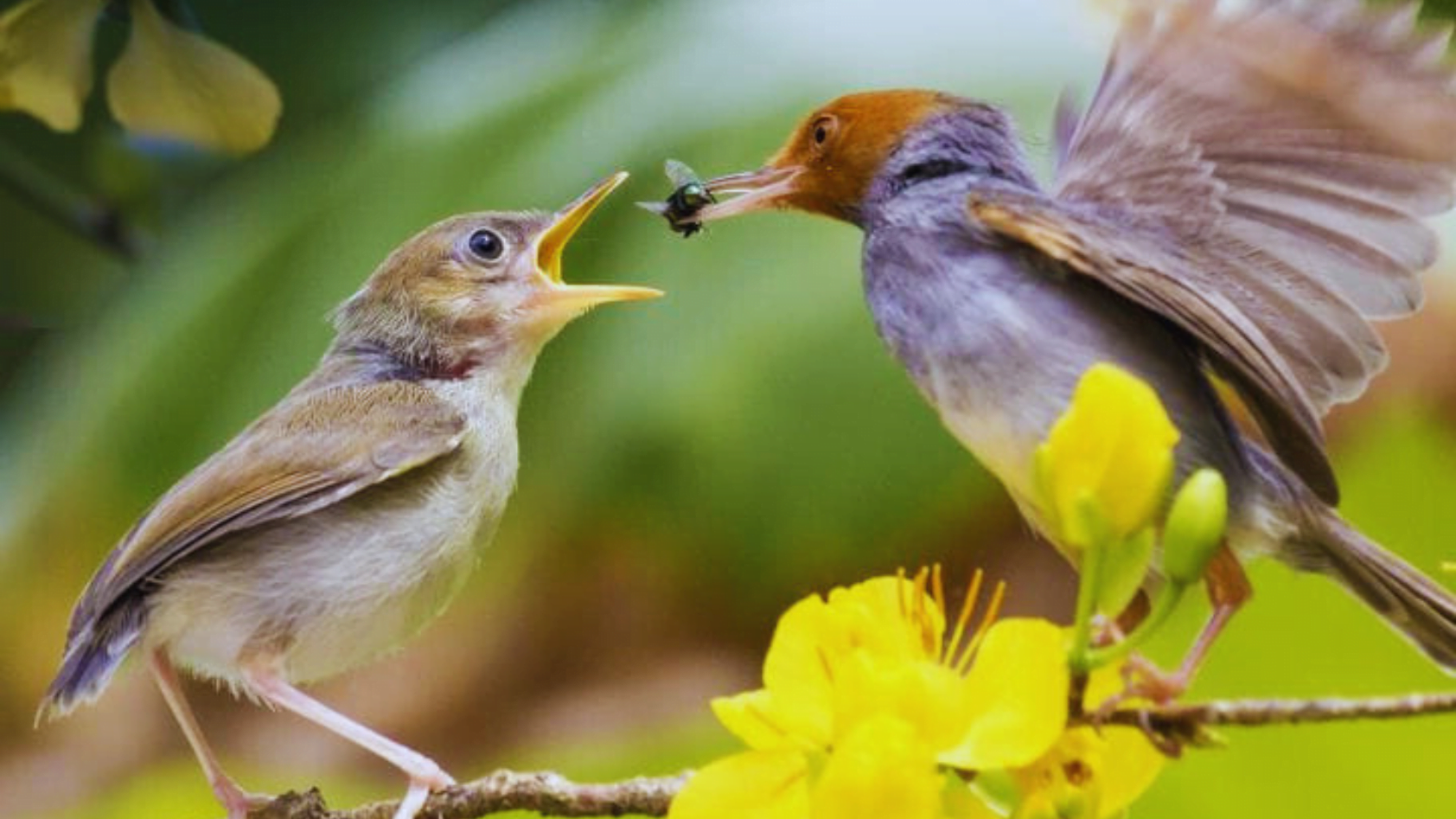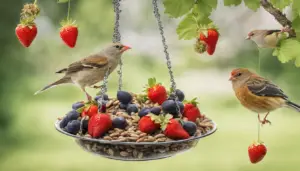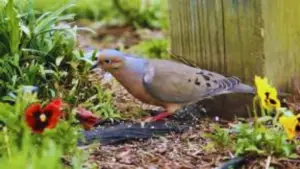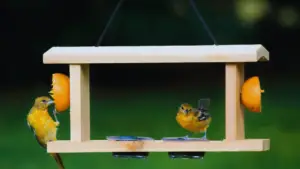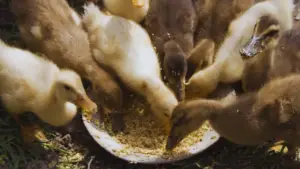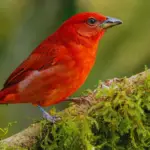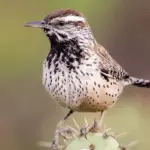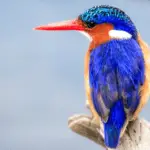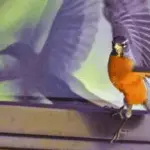Do Birds Eat Ants? It’s a common question, and one that we get asked a lot. The answer, simply put, is yes—birds do eat ants. In fact, ants are a key part of the diet of many species of birds. So, if you’re wondering whether or not your feathered friend is getting enough ants in their diet, the answer is probably yes!
Do you ever wonder what’s on the menu for birds? It may surprise you to learn that these feathered creatures have quite a diverse palate. In fact, they’re not just satisfied with the usual seeds and worms.
Birds have a fascination with ants, of all things. Yes, those tiny insects that scurry around on the ground. But why would birds be interested in ants, you ask? Well, it turns out that ants are just one of the many types of insects that birds find delicious.
Their insect consumption actually holds great ecological significance, playing a crucial role in maintaining the balance of ecosystems. But birds’ culinary adventures don’t stop at ants. From fish to frogs, they have quite the predatory habits as well. And let’s not forget their role as scavengers, helping to decompose and recycle organic matter.
However, human activities have had a significant impact on birds’ food sources. That’s why conservation efforts are underway to protect these beautiful creatures and ensure they have enough to eat.
So, let’s dive into the fascinating world of avian appetites and explore the diverse foods that birds enjoy.
Key Takeaways
- Birds have diverse dietary preferences and adapt to different habitats.
- Avian dietary preferences are important for bird conservation and managing pest populations.
- Birds play a crucial role in controlling insect populations and nutrient cycling.
- Humans can impact avian food sources through habitat loss and pollution, and should take steps to protect them.
Avian Diets: A Look at the Variety of Foods Birds Consume
Birds have quite the taste for a wide range of foods, showing that their diets are as diverse as their feathers. Whether it’s seeds, fruits, insects, or even small mammals, birds are not picky eaters. They have adapted to different habitats and developed specialized beaks to help them consume their preferred food sources.
Some birds, like finches and sparrows, have a preference for seeds. They use their strong beaks to crack open the hard shells and extract the nutritious contents within. Other birds, such as robins and thrushes, enjoy feasting on a variety of fruits. They play an important role in seed dispersal by ingesting fruits and then excreting the seeds in different locations.
Insects are also a staple in many birds’ diets. Warblers, flycatchers, and swallows are known for their acrobatic aerial foraging skills, catching insects mid-flight. They provide a valuable service by controlling insect populations, especially during the breeding season when they need a high-protein diet to raise their young.
Some birds take their diets to extremes. Birds of prey, like eagles and hawks, have a taste for small mammals, such as mice and rabbits. They use their sharp talons and beaks to capture and consume their prey. These birds have powerful digestive systems that allow them to break down bones and fur.
In conclusion, birds have a diverse palate and can eat a wide variety of foods. From seeds and fruits to insects and even small mammals, birds have adapted to different food sources depending on their habitat and beak shape. So next time you see a bird, remember that it may have a taste for something you wouldn’t expect.
The Importance of Understanding Avian Dietary Preferences
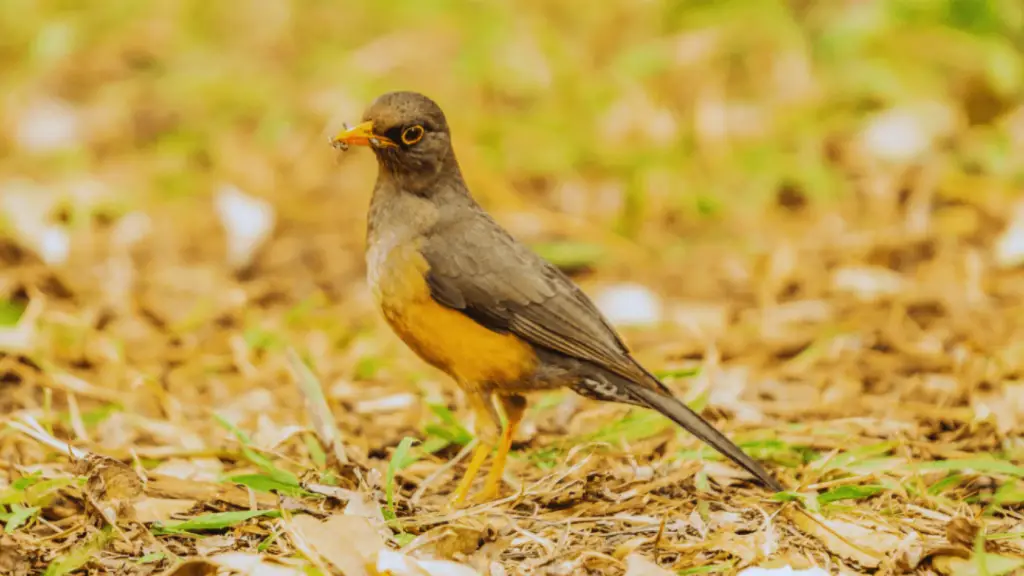
It’s crucial to grasp the significance of comprehending the various tastes that birds have when it comes to their food preferences. Understanding avian dietary preferences is important for several reasons.
Firstly, it allows us to better provide for the needs of birds in our environments. By knowing what types of foods they prefer, we can create habitats that offer the necessary resources for their survival.
Secondly, understanding avian dietary preferences helps us to conserve bird populations. By ensuring that they have access to their preferred foods, we can help prevent declines in their numbers.
Furthermore, understanding avian dietary preferences can also aid in the management of pest populations. Birds play an important role in controlling populations of insects and other pests. By knowing what types of foods attract birds, we can strategically use this knowledge to control pests in a more natural and environmentally friendly way.
In addition, understanding avian dietary preferences can also enhance our overall appreciation and enjoyment of birds. By observing their feeding behaviors and providing the foods they prefer, we can attract a wide variety of bird species to our yards or local parks, allowing us to experience the beauty and diversity of these creatures up close.
In conclusion, comprehending avian dietary preferences is crucial for providing for their needs, conserving their populations, managing pest populations, and enhancing our appreciation of birds. So next time you see a bird, take a moment to think about what it might enjoy eating and how you can help provide for its dietary preferences.
Ants on the Menu: Exploring Birds’ Fascination with Insects
Indulge in the captivating world of insects as you witness their allure for our feathered friends. Birds have a special fascination with insects, and ants are definitely on the menu for many avian species. These tiny creatures provide a nutritious and easily accessible food source for birds, offering a range of benefits to their diet.
Here are four reasons why birds are so fascinated with ants:
- Protein-rich diet: Ants are high in protein, which is essential for birds’ growth, reproduction, and overall health. They provide a convenient and abundant source of this vital nutrient.
- Easy prey: Ants are slow-moving insects, making them easy targets for birds. Their small size and lack of defenses make them a quick and effortless meal.
- Ant colonies: Birds can feast on ants by targeting their colonies, which can contain thousands or even millions of individuals. This abundance ensures a steady and reliable food source for the birds.
- Nutrient-rich larvae: Some bird species specifically target ant larvae, which are rich in fats and proteins. These larvae are highly nutritious and are eagerly sought after by insectivorous birds.
As you delve into the world of birds and their diverse appetites, it becomes clear that ants play a significant role in their diet. So, the next time you spot a bird foraging on the ground, remember that it might just be enjoying a tasty ant feast.
The Ecological Significance of Birds’ Insect Consumption
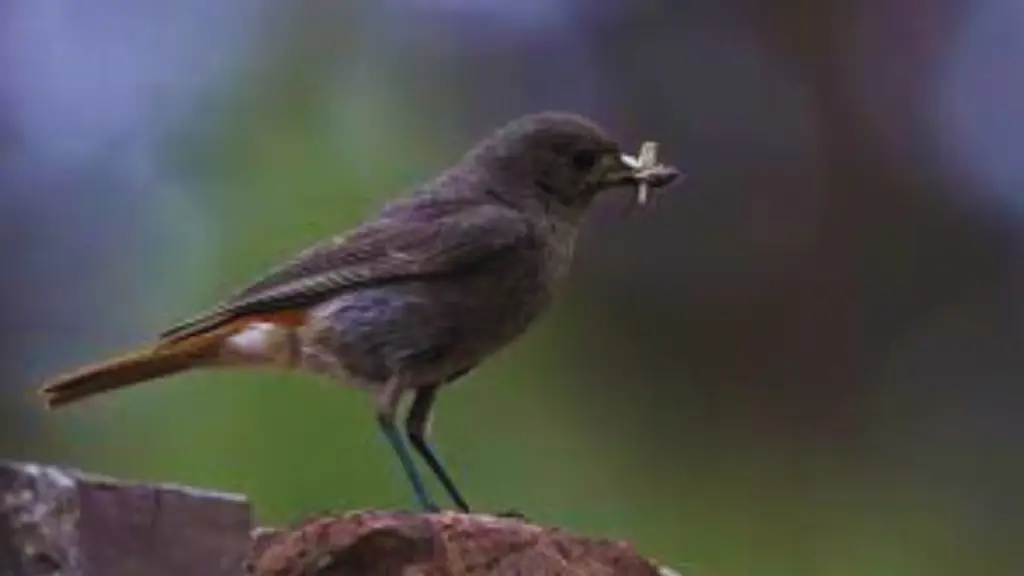
Explore the ecological significance of birds’ love for insects and uncover how their insect consumption plays a vital role in maintaining the delicate balance of our natural world.
Birds have a diverse palate when it comes to food, and insects are a favorite delicacy for many species. Not only do birds enjoy the taste of insects, but their consumption also serves important ecological functions.
One of the key roles that birds play in insect consumption is pest control. Many insects, such as mosquitoes, aphids, and caterpillars, can be detrimental to crops and gardens. Birds help keep the populations of these pests in check by hunting and feeding on them. This natural form of pest control reduces the need for harmful pesticides, making it a more sustainable and environmentally-friendly option.
In addition to pest control, birds’ insect consumption also contributes to nutrient cycling. When birds consume insects, they break them down in their digestive systems and release the nutrients back into the environment through their droppings. This process helps fertilize the soil and promote plant growth, which ultimately benefits the entire ecosystem.
Furthermore, birds’ love for insects creates a ripple effect in the food chain. As birds eat insects, they become a food source for larger predators, such as snakes, mammals, and other birds. This interconnectedness ensures a balanced ecosystem and prevents any one species from becoming too dominant.
In conclusion, birds’ appetite for insects is not just a matter of taste, but it serves important ecological functions. From pest control to nutrient cycling and maintaining a balanced food chain, birds’ insect consumption plays a vital role in sustaining the delicate balance of our natural world.
Beyond Ants: Birds’ Diverse Food Choices
Get ready to embark on a delectable journey as you discover the wide array of culinary choices that birds make beyond their love for ants. Birds have diverse food choices that go beyond just feasting on ants. They have an incredible ability to adapt their diet to their environment and take advantage of the available food sources. Here are some fascinating options that birds enjoy:
- Fruits and Berries: Birds relish the sweet taste of ripe fruits and juicy berries. From colorful tropical fruits like mangoes and bananas to succulent berries like blueberries and raspberries, birds are often seen perched on trees, indulging in these delicious treats.
- Seeds and Grains: Many species of birds have a particular fondness for seeds and grains. They crack open seeds with their beaks and enjoy the nutrient-rich kernels inside. Whether it’s sunflower seeds, corn, or millet, birds find these delights both tasty and nourishing.
- Nectar: Hummingbirds, in particular, have a unique preference for nectar. They use their long, slender beaks to extract the sweet liquid from flowers. Nectar provides them with a high-energy food source, keeping them fueled for their acrobatic flights.
- Insects and Worms: While ants are a popular choice among birds, they also feast on a wide variety of insects and worms. From juicy caterpillars to crunchy beetles, birds play a crucial role in controlling insect populations, making them valuable allies in pest control.
Birds’ diverse food choices not only satisfy their appetites but also play a vital role in maintaining ecological balance. So, next time you spot a bird, take a moment to appreciate their remarkable palate and their contribution to the natural world.
Seeds, Fruits, and Nectar: Exploring Birds’ Plant-Based Diets
Immerse yourself in the fascinating world of birds’ plant-based diets, as they savor the delightful flavors of seeds, fruits, and nectar.
Birds have evolved to take advantage of the wide variety of plant-based food sources available to them. Seeds are a staple in many birds’ diets, providing them with essential nutrients and energy. From tiny finches to large parrots, birds have adapted different beak shapes and sizes to crack open various types of seeds. They skillfully extract the nutritious kernels inside, leaving behind the shells.
Fruits also play a crucial role in birds’ diets. The vibrant colors and sweet aromas of fruits attract birds, who eagerly feast on the juicy flesh. Birds not only enjoy the taste of fruits but also help with seed dispersal. As they eat the fruit, they inadvertently swallow the seeds, which are then dispersed through their droppings, aiding in the growth of new plants.
Nectar, a sugary liquid found in flowers, is another favorite food source for many birds. Hummingbirds, for example, have long, slender beaks that allow them to reach deep into flowers to extract nectar. They lap up the sweet liquid with their specialized tongues, fueling their high-energy lifestyles.
So, next time you spot a bird feasting on a seed, indulging in a juicy fruit, or sipping nectar from a flower, take a moment to appreciate the diverse plant-based diet that sustains these incredible creatures.
The Role of Birds as Pollinators
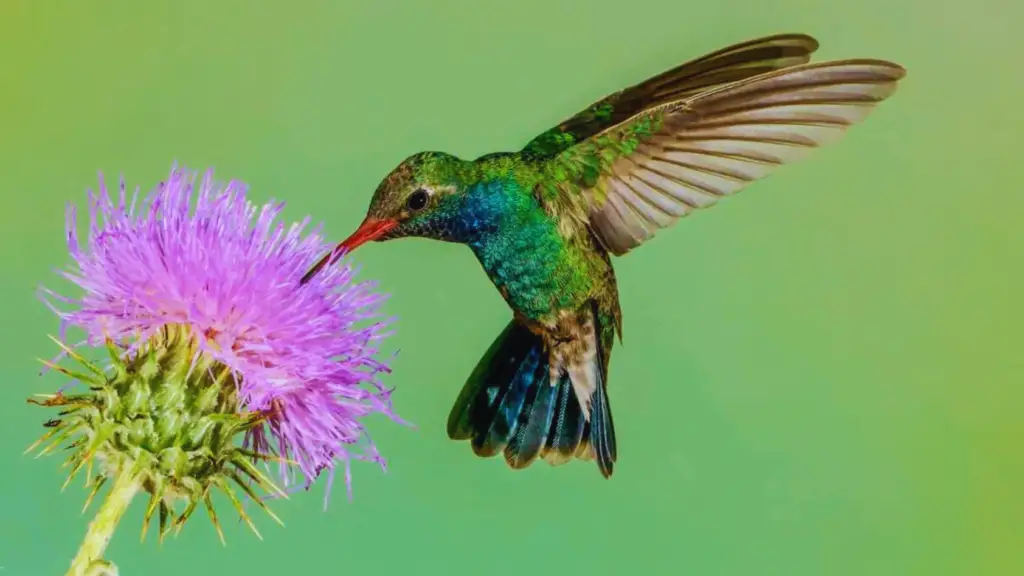
Now that you’ve learned about birds’ plant-based diets and how they rely on seeds, fruits, and nectar, let’s dive into another fascinating aspect of their role in the ecosystem: their role as pollinators.
Yes, you heard it right – birds are not just consumers of plants, they also play a vital role in their reproduction.
As birds feed on nectar from flowers, they inadvertently pick up pollen on their feathers and beaks. When they move on to the next flower, some of this pollen is transferred, allowing for cross-pollination. This process helps plants reproduce and create genetic diversity, which is crucial for their survival.
Birds are particularly effective pollinators for certain types of flowers. Their long beaks and tongues allow them to reach deep into tubular flowers, accessing nectar that other pollinators may not be able to reach. They also have a strong flight capability, enabling them to travel long distances, spreading pollen across various habitats.
So next time you see a hummingbird hovering around a flower or a sunbird sipping nectar, remember that they are not just enjoying a sweet treat, but they are also performing an important ecological service by pollinating plants.
Birds truly have a diverse palate, and their role as pollinators ensures the survival and beauty of many plant species.
Fish and Frogs: Birds’ Predatory Habits
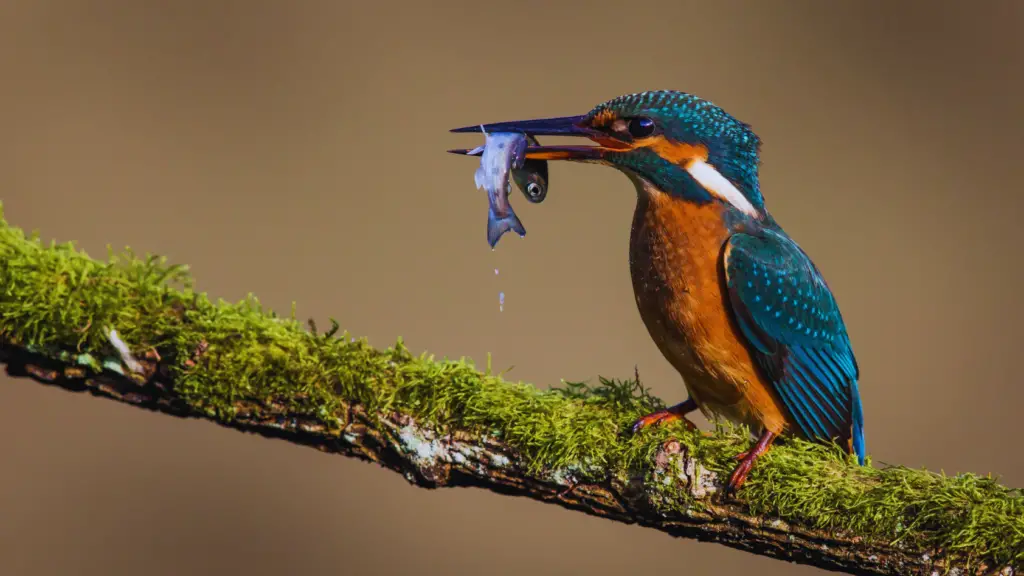
When you witness a bird swooping down to catch a fish or hear the croak of a frog being devoured, you can’t help but be captivated by the predatory habits of these winged creatures. Birds have a diverse palate, and their ability to prey on fish and frogs showcases their adaptability as hunters.
Many bird species have perfected the art of fishing. They use their sharp beaks to snatch fish from the water’s surface or dive into the depths to catch their prey. Some birds, like the osprey, have specially adapted feet that enable them to grasp fish with ease. These birds are truly remarkable to watch as they effortlessly snatch their meal from the water.
Frogs also make for a tasty treat for certain bird species. Birds that prey on frogs, like herons and egrets, have long beaks that they use to impale their prey before swallowing it whole. The sight of a heron slowly stalking its prey before making a swift strike is both impressive and slightly eerie.
Birds’ predatory habits extend beyond just fish and frogs. They will also prey on other small animals, such as insects, rodents, and even other birds. This diverse diet allows birds to adapt to various environments and take advantage of available food sources.
So, the next time you see a bird swooping down or hear the sound of a frog being devoured, take a moment to appreciate the incredible predatory habits of these winged creatures. They are a true testament to the adaptability and resourcefulness of birds in the natural world.
Scavengers of the Sky: Birds’ Role in Decomposition
Birds play a crucial role in the process of decomposition as they scavenge the sky and aid in the breakdown of organic matter. It may be surprising, but birds are important contributors to this natural process. They are scavengers that clean up the environment by consuming dead animals and aiding in their decomposition.
Birds like vultures and crows are well-known for their scavenging habits. They have a keen sense of smell and quickly detect the scent of decaying flesh. Once they find a carcass, they waste no time feasting upon it. By consuming the remains, birds help break down the organic matter, facilitating its return to the ecosystem.
In addition to carrion, birds also play a role in the decomposition of other organic material, such as fruits and vegetables. They are often attracted to rotting produce, which they consume and help disperse through their droppings. This aids in the dispersal of seeds and promotes the growth of new plants.
So, next time you see a bird soaring through the sky or pecking at a carcass, remember that they are not just scavengers but important contributors to the natural process of decomposition. Their appetite for organic matter helps keep our environment clean and supports the cycle of life.
The Impact of Human Activities on Avian Food Sources
Next time you see a bird soaring through the sky or pecking at a carcass, imagine the impact your human activities have on their food sources. Humans have undeniably transformed the environment, and this transformation has affected the availability and quality of food for birds.
One major impact is the loss of natural habitats due to deforestation and urbanization. As trees are cut down and cities expand, birds lose their homes and the insects that inhabit them.
Additionally, pollution from industries and agriculture contaminates water bodies, which leads to a decline in aquatic insects, an important food source for many bird species.
Furthermore, the use of pesticides in agriculture not only kills pests but also affects the populations of insects that birds rely on. As a result, birds are forced to adapt and find alternative food sources, which may not be as nutritious or abundant.
It is crucial for humans to recognize the consequences of their actions and take steps to mitigate the negative impacts on avian food sources. By conserving natural habitats, reducing pollution, and promoting sustainable agricultural practices, we can help ensure that birds have access to the diverse and nutritious food they need to thrive.
Conservation Efforts to Protect Birds and Their Food Sources
If you want to help protect birds and ensure their access to sufficient food, what conservation efforts can you contribute to? There are several ways you can make a difference. First, you can create bird-friendly habitats in your own backyard by planting native plants and providing bird feeders and nesting boxes. This will attract a variety of birds and provide them with a diverse range of food sources. Additionally, you can support local conservation organizations that work to protect bird habitats and food sources. By donating your time or money, you can help fund important research and conservation projects. Another important way to contribute is by advocating for policies that protect bird habitats and regulate harmful activities, such as pesticide use and deforestation. Finally, you can educate others about the importance of bird conservation and inspire them to take action. By spreading awareness and sharing your passion, you can encourage more people to join the effort and make a positive impact on bird populations.
| Effort | Description |
|---|---|
| Create bird-friendly habitats | Plant native plants, provide feeders and nesting boxes |
| Support local conservation organizations | Donate time or money to fund research and projects |
| Advocate for protective policies | Promote regulations on harmful activities |
| Educate others | Spread awareness and inspire action |
Do Birds Eat Ants? FAQs
What are some examples of birds’ plant-based diets?
Some birds have plant-based diets. They enjoy eating fruits, berries, seeds, and even nectar. These foods provide them with essential nutrients and energy to thrive in their natural habitats.
How do birds contribute to the process of decomposition?
Birds contribute to decomposition by scavenging on dead animals. For example, vultures play a crucial role in cleaning up carcasses, preventing the spread of diseases, and recycling nutrients back into the ecosystem.
What are the main factors that influence avian dietary preferences?
Main factors influencing avian dietary preferences include habitat, availability of food sources, and evolutionary adaptations. Birds choose their diets based on what is accessible and suitable for their survival and reproduction.
How do human activities affect the availability of food sources for birds?
Human activities can have a significant impact on the availability of food sources for birds. Habitat destruction, pollution, and the use of pesticides can all disrupt the natural food chain and reduce the amount of food available for birds.
What are some conservation efforts in place to protect birds and their food sources?
Conservation efforts are crucial for protecting birds and their food sources. Despite human activities affecting availability, initiatives like habitat preservation, creating bird-friendly gardens, and reducing pesticide use are helping to ensure their survival.
Conclusion
Do birds eat ants? Understanding the diverse palate of avian appetites is essential in appreciating the incredible variety of food that birds consume. From ants to fish to even decomposing animals, birds have an eclectic taste in food. Some bird species can consume up to 40% of their body weight in insects every day, which is a staggering amount. By understanding birds’ dietary preferences and the importance of their food sources, we can work towards conserving their habitats and ensuring their survival in the face of human activities. So, let’s do our part to protect these fascinating creatures.

